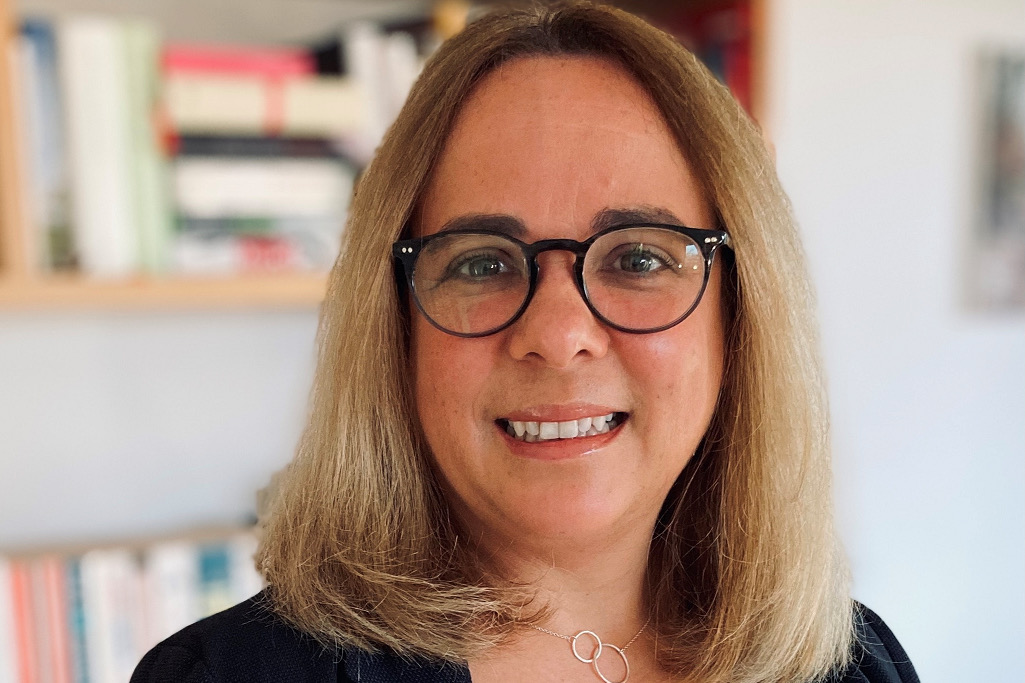Conference highlights early-career research barriers

Miriam Maus
'If scientists are successful, we are successful.' That was the message of publishing director Miriam Maus, at PubCon – IOP Publishing’s staff conference – which focussed on trends in publishing and how publishers can support scientists in delivering high quality research.
IOP Publishing invited three inspiring early career researchers (ERCs) to the conference. They shared their first-hand insights on the challenges they face in the physical sciences with a view to inform what publishers can do differently.
First steps into academia
'It is really difficult for us as early career researchers to establish ourselves and get recognised by journals,' argued Caitlin Duffy, a PhD student at the High Field Magnet Lab at the Radbout University in The Netherlands. 'You either have to work with someone who is already recognised, or you have to somehow work on an experiment that gets you into science. I think it would be helpful to establish dedicated journal issues that encourage ERCs and discourage the big shots to publish their articles in those outlets.'
'Breaking into the cycle of science is the hardest thing for ERCs', added Jess Wade, a young British physicist in the Blackett Laboratory at Imperial College London. Her public engagement work in science, technology, engineering, and mathematics (STEM) advocates for women in physics as well as tackling systemic biases.
'When we are trying to establish ourselves as scientists, reputation and recognition is what gets you to move up the career ladder. 'This is harder for people from historically marginalised groups. For example, when it comes to peer review, your currency is the number of times your work is cited: it can determine whether you get a fellowship or a permanent position or a promotion. There’s a huge amount of evidence that white men are cited more than women and people of colour. If we are excluding people out of the academic cycle due to bias and discrimination, some will never get a chance to establish themselves in academia.'
Credit where credit is due
Another issue that was brought up by the ERCs invited to the conference is the lack of credit ERCs receive for the work they do.
'I’ve known several ECRs who constantly do peer review for research leaders without knowing that they were taking the credit for it, or even what the responses of the reviewers were. Research leaders should never take credit for the work of more junior researchers. It’s a bad habit, but it’s done throughout the sector,' added Wade. 'A way to address this issue is to encourage ERCs to create their own academic profile so that journals know who the specialist is and who to contact for reviewing papers on that topic. It will help the ERCs to establish themselves and gain experience and it will help the journals to get expertise without having to ask the same reviewers over and over again.'
Karen Syres, a lecturer in physics at the Jeremiah Horrocks Institute agreed, suggesting: 'It would be good if people who turn down review requests are asked to suggest one of their postdoctoral researchers or PhD students to review instead.'
When asked what publishers should stop doing to help ERCs progress their careers, all three panellists agreed that the peer review process should be more efficient. 'I find submitting papers longwinded and depressing,' said Syres. 'I’ve been at this game for a few years now but understanding and navigating the publishing process is hard. You have to go through all sorts of questions you’re not expecting, for example, listing software that was used to create the figures, or sometimes it can take hours to add students or co-authors to the system.'
Be kind by order
Other issues that affect ERCs are heavy workloads and time management. According to Duffy it’s a constant balancing act between networking, conducting experimental research, writing and reviewing work, all alongside her personal life.
'At the university where I work we have a high teaching load. I have about 100 lectures a year and I have colleagues who have about 200 lectures a year,' added Syres. 'I’m lucky enough to have some PhD students, but how else can we carry out research and write papers with so many demands on our time?'
The panellists agreed that accredited training that is recognised by institutions could be a valuable means to support ERCs. Training as part of conferences could be an effective way to reach ERCs and more established researchers as there is a need to better understand the peer review process and what best practice should look like.
IOP Publishing offers Peer Review Excellence, a training programme tailored for the physical sciences and delivered by top-level physicists from around the globe. The accredited training and certification offers a mix of online workshops and digital learning with the opportunity to gain hands-on review experience. To join IOP Publishing’s free peer review excellence training, please register here: https://ioppublishing.org/peer-review-excellence/











